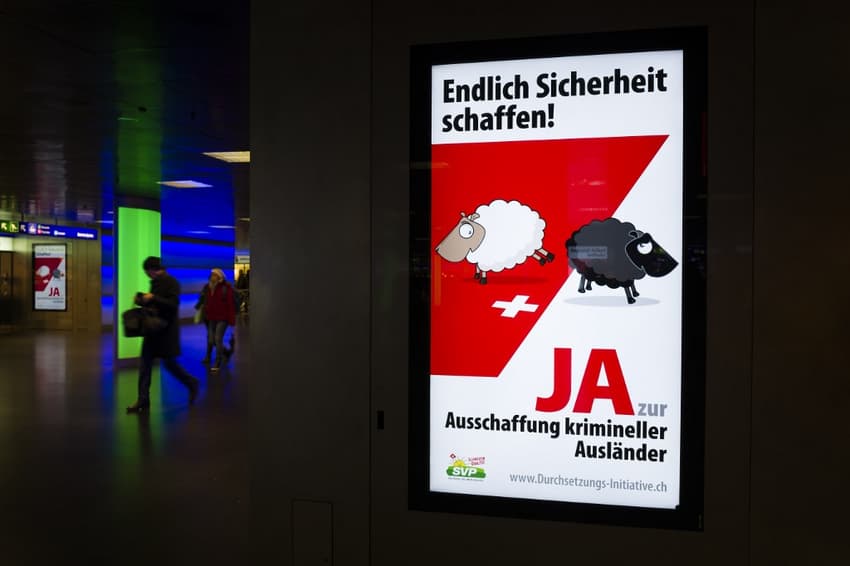Racism: Young people in Switzerland feel increasingly discriminated against

Young people in Switzerland are far more likely to feel discriminated against than five years ago, a new government report reveals.
A total of 38 percent of people aged 15–24 in Switzerland said they felt they had been the victim of discrimination, up from 28 percent earlier, according to the latest report on racial discrimination in Switzerland published by the Service for Combating Racism (SCRA).
The overall figure for all age groups is 28 percent.
READ ALSO: Racism in Switzerland - 'People of colour are automatically perceived as different'
The SCRA report (a short version is available here in English) looks at latest research on racism in Switzerland and the state of play in efforts to combat the problem.
The study's authors note that while more research is needed to learn whether young people are actually experiencing more racism, there is an increased awareness of racial discrimination among people in this age group.
The comprehensive report also highlights that racism is especially likely to occur when people are looking for work or during working life.
In addition, the SCRA stressed that new strategies must be developed to fight online hate speech.
Many of the findings from in the report published on Monday stem from the diversity and coexistence in Switzerland survey.
Th 2018 edition of that poll found that 59 percent of respondents believe racism is a serious problem in Switzerland while 31 percent of people said not enough was being done to deal with the issue.
One third of poll respondents said they felt uncomfortable around people who were different. A total of 11 percent of people said they had negative attitudes towards black people and Muslims and nine percent said they had these negative attitudes towards Jewish people.
READ ALSO: 'No Asians' - Zurich's ETH Uni hit by racist graffiti
Comments
See Also
A total of 38 percent of people aged 15–24 in Switzerland said they felt they had been the victim of discrimination, up from 28 percent earlier, according to the latest report on racial discrimination in Switzerland published by the Service for Combating Racism (SCRA).
The overall figure for all age groups is 28 percent.
READ ALSO: Racism in Switzerland - 'People of colour are automatically perceived as different'
The SCRA report (a short version is available here in English) looks at latest research on racism in Switzerland and the state of play in efforts to combat the problem.
The study's authors note that while more research is needed to learn whether young people are actually experiencing more racism, there is an increased awareness of racial discrimination among people in this age group.
The comprehensive report also highlights that racism is especially likely to occur when people are looking for work or during working life.
In addition, the SCRA stressed that new strategies must be developed to fight online hate speech.
Many of the findings from in the report published on Monday stem from the diversity and coexistence in Switzerland survey.
Th 2018 edition of that poll found that 59 percent of respondents believe racism is a serious problem in Switzerland while 31 percent of people said not enough was being done to deal with the issue.
One third of poll respondents said they felt uncomfortable around people who were different. A total of 11 percent of people said they had negative attitudes towards black people and Muslims and nine percent said they had these negative attitudes towards Jewish people.
READ ALSO: 'No Asians' - Zurich's ETH Uni hit by racist graffiti
Join the conversation in our comments section below. Share your own views and experience and if you have a question or suggestion for our journalists then email us at [email protected].
Please keep comments civil, constructive and on topic – and make sure to read our terms of use before getting involved.
Please log in here to leave a comment.